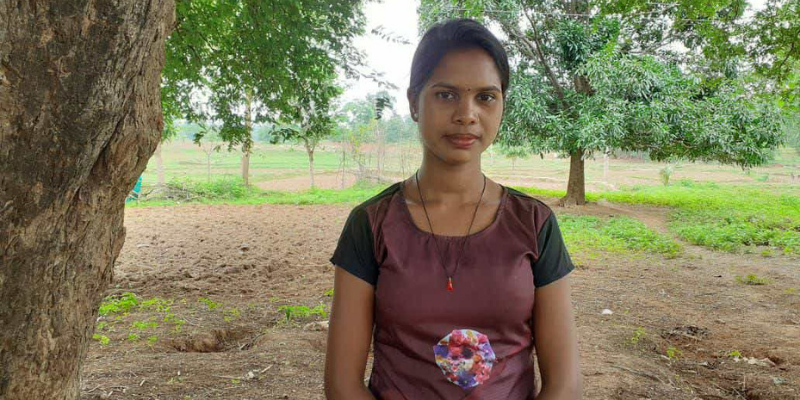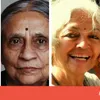How this 20-year-old is stopping child marriages and raising awareness on social issues in an Odisha village
As the president of the women’s group formed by NAWO (National Alliance of Women's Organisations), Odisha, Manju Patra sensitises people via meetings and workshops to the negative consequences of child marriages and gender inequality.
In February this year, 20-year-old Manju Patra stopped a 16-year-old boy and a 20-year-old girl from getting married in her village.

Manju Patra
She met the CDPOs, police, and other stakeholders to stop this marriage. The boy’s parents were up in arms; she was insulted, threatened, and a group even vowed to kidnap her. But Manju remained unfazed. Her fight against child marriage in the region would continue, despite the backlash. She says she broke down just once when someone called her a ‘sex worker’. That was momentary, and the feisty young woman was back on her feet, relentless in her campaign against child marriage.
Manju hails from Borbhat village in the Kalahandi district of Odisha. The region is a study in contrasts; it’s infamous for famine and starvation deaths and was at one time known as the “Ethiopia of India”. On the other hand, it also has a rich agricultural heritage.
Leading the change
Other disparities exist and are primarily rooted in the backwardness of the communities that live here. Child marriages were widely prevalent in the milieu with deep socio-cultural roots until a few years ago. Girls were not encouraged to go to school, and domestic violence was all-too-common.
Against this backdrop, Manju's journey as an activist began from her own home and is inspired by her mother, Sivararti Patra, a child marriage survivor.
“At the age of 14, my mother was married to my father, Nichal Patra, who was only 17 at the time. Deprived of agency, education, and any knowledge about reproductive health, she gave birth to 14 children, out of which only four survived. Her pain, helplessness, and emotional and physical challenges inspired me to change the narrative of my own life,” she says.
In Borbhat, girls are not encouraged to study beyond 10th standard. Manju had to thwart attempts by her extended family to get her married right from the age of 15. They also dissuaded her from studying further.

Manju teaching the girls
After completing her 12th standard in 2017, Manju heard of Oxfam India’s efforts in her village to raise awareness on VAW (Violence Against Women) and CEFM (Child, Early, and Forced Marriage). She began attending meetings and realised how these ancient, deep-rooted societal practices were detrimental to men and women. It was time to lead the change.
“I belong to the Gond community, and while there were many incidences of child marriages before 2017, including those of my friends, awareness is bringing in change. Regular meetings are enabling girls, women, and parents aware of the evils of child marriage and violence against women. People are also becoming aware of their rights and learning to speak up,” she says.
Towards gender equality
From claiming her right to education as a young girl to not relinquishing her agency as a woman, Manju has come a long way. Today, as the president of the women’s group formed by NAWO (National Alliance of Women's Organisations), Odisha, she sensitises people via meetings and workshops about the negative consequences of child marriages and gender inequality.
Apart from stopping child marriages and elopements in her village, Manju also advocates the importance of menstrual and sexual reproductive health in the meetings. She says, initially, no one turned up for the sessions saying that they would lose a day’s wages, but once the leaders in the village convinced them, at least 20 people turned up each time.
The journey has not been easy for Manju. She continues to receive threats, but says the support from her friends and family far outweigh the negatives in her journey.
“In our village, girls are not even allowed to dance. During Dussehra in 2017, I was the first girl to dance in public. My parents received a lot of complaints, and people wondered that with my behaviour if I could ever get married,” she says.
Support from Oxfam

Manju and others engaged in data collection
Oxfam India has been a strong pillar of support in Manju’s fight against backwardness in the region. They have been encouraged to write, speak up, and study further.
Speaking to HerStory, Rukmini Panda, Program Officer-Gender Justice, Oxfam India, says, “Manju Patra was a member in the youth collective, and she has now emerged as a champion and has forged many change actions. We educate young adolescents and women on human rights, the ill effects of gender discriminatory practices and promote positive gender norms to foster gender equality. This engagement is a rigorous and a continuous process. Besides, Manju Patra and other youth members participate in different conversations and campaigns that help them understand the larger issues of women’s rights.”
Rukmini points out that most Hindi films objectify women and reinforce the idea of patriarchy.
“Hence, we educate young and adolescent members to analyse films from a feminist perspective. This helps them to understand women’s rights and not idealise the negative gender norms propagated by films. Manju Patra has been part of these training sessions,” she adds.
Manju believes that education is the first step towards change, and awareness must begin at the school level. She recently completed her BBA and now wants to take up a job and live an independent life.
“I have told my parents that I will choose my partner,” she says with a chuckle.
Meanwhile, she advises young girls to study hard, attend meetings regularly, and help raise awareness on child marriage and sexual reproductive health. It’s a life-long commitment and one that Manju is determined to carry forward.
Edited by Megha Reddy






